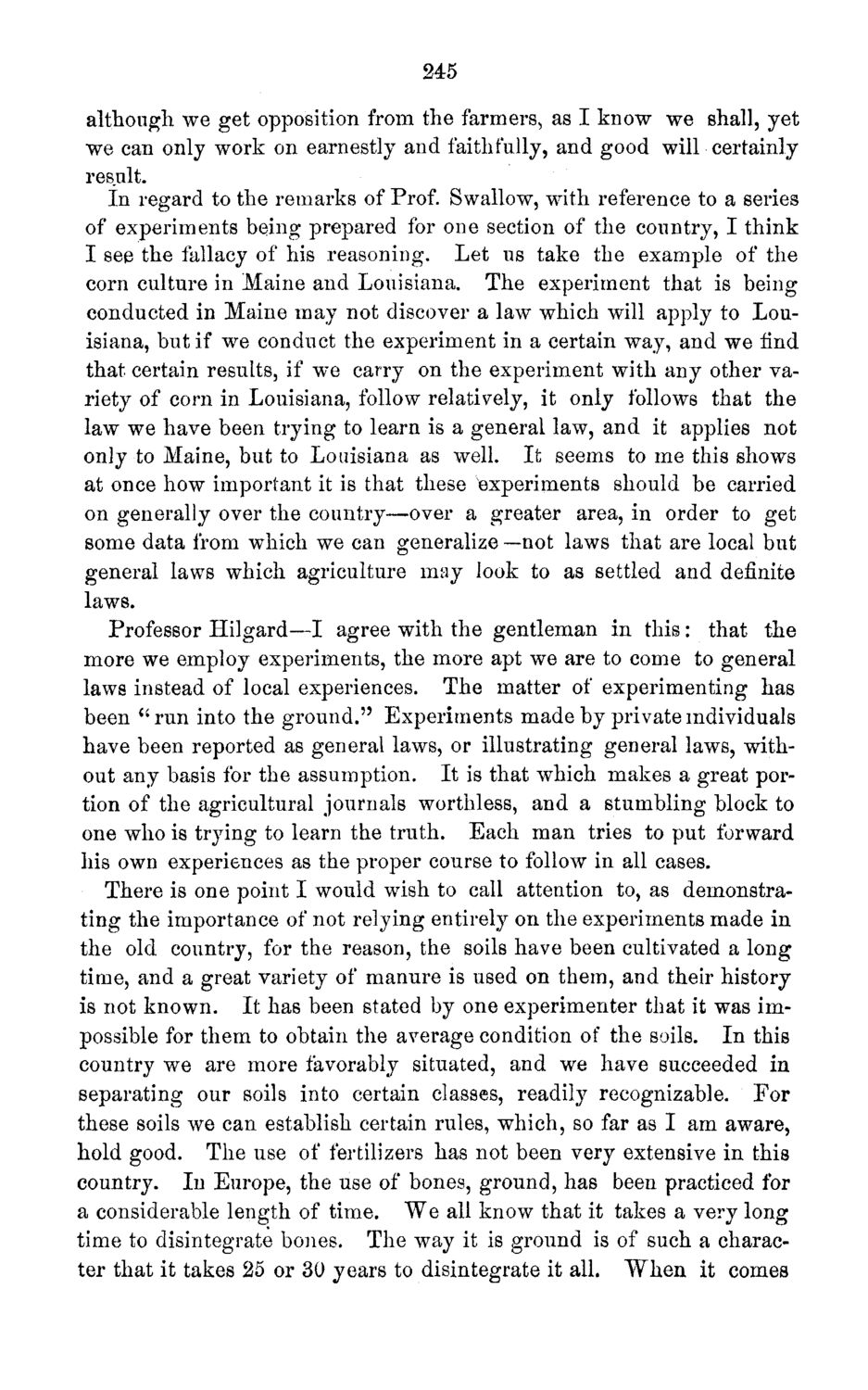| |
| |
Caption: Board of Trustees Minutes - 1871
This is a reduced-resolution page image for fast online browsing.

EXTRACTED TEXT FROM PAGE:
245 although we get opposition from the farmers, as I know we shall, yet we can only work on earnestly and faithfully, and good will certainly result. In regard to the remarks of Prof. Swallow, with reference to a series of experiments being prepared for one section of the country, I think I see the fallacy of his reasoning. Let us take the example of the corn culture in Maine and Louisiana. The experiment that is being conducted in Maine may not discover a law which will apply to Louisiana, but if we conduct the experiment in a certain way, and we find that certain results, if we carry on the experiment with any other variety of corn in Louisiana, follow relatively, it only follows that the law we have been trying to learn is a general law, and it applies not only to Maine, but to Louisiana as well. It seems to me this shows at once how important it is that these experiments should be carried on generally over the country—over a greater area, in order to get some data from which we can generalize —not laws that are local but general laws which agriculture may look to as settled and definite laws. Professor Hilgard—I agree with the gentleman in this: that the more we employ experiments, the more apt we are to come to general laws instead of local experiences. The matter of experimenting has been " r u n into the ground." Experiments made by private individuals have been reported as general laws, or illustrating general laws, without any basis for the assumption. It is that which makes a great portion of the agricultural journals worthless, and a stumbling block to one who is trying to learn the truth. Each man tries to put forward his own experiences as the proper course to follow in all cases. There is one point I would wish to call attention to, as demonstrating the importance of not relying entirely on the experiments made in the old country, for the reason, the soils have been cultivated a long time, and a great variety of manure is used on them, and their history is not known. It has been stated by one experimenter that it was impossible for them to obtain the average condition of the soils. In this country we are more favorably situated, and we have succeeded in separating our soils into certain classes, readily recognizable. For these soils we can establish certain rules, which, so far as I am aware, hold good. The use of fertilizers has not been very extensive in this country. In Europe, the use of bones, ground, has been practiced for a considerable length of time. We all know that it takes a very long time to disintegrate bones. The way it is ground is of such a character that it takes 25 or 30 years to disintegrate it all. When it comes
| |